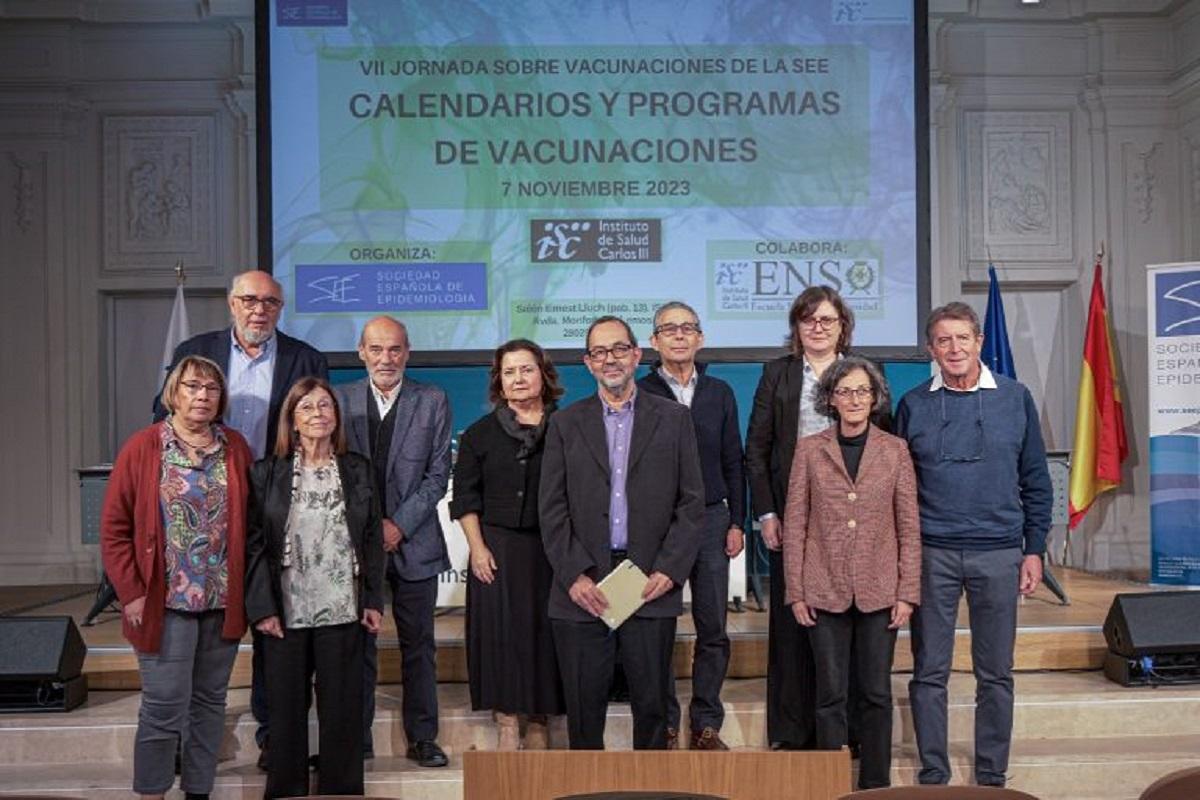The very concept of “vulnerable groups” raises concerns. ‘Considerable challenges’ in terms of vaccine coverage and immune response optimization. The Spanish Epidemiology Association said it advocated the introduction of the concepts of personalized and precision medicine at this week’s seventh vaccination conference as a means to address the high variability of vaccination programs for high-risk groups.
The meeting, held in the Ernest Luch Room of the Carlos III Health Institute, put the issue of risk groups on the table. He believes this population “presents challenges in terms of vaccine coverage and immune response optimization.” The concept of “vulnerable” itself has posed “a challenge because it brings together multiple conditions that, in many cases, are not comparable to each other and to which the same risks cannot be attributed.” Contagious. ” So, they say, the first step to improving vaccination coverage among these groups is to understand exactly who you want to reach and how to do it.
“This is where the concept of ‘personalized and precision medicine’ comes into play, since in high-risk groups it is necessary to tailor the vaccination program to the characteristics and risks of each individual.” In this sense, they insist They value the importance of individualized decision-making in ensuring immunization of immunocompromised patients and the role of physicians who must communicate to patients the importance of correct vaccination. And, as they give the example, a person with HIV has an immune system whose immune age is 25 years older than his or her actual age, which is why he or she must be fully vaccinated.
Furthermore, they are ” Bring these immunization consultations closer to hospital sites where these patients are regularly cared for and improve information systems“. In this way, it will be possible to truly understand who is susceptible and improve protection against infection in these patients, which will become even more important in a few decades.” They warn: “The United Nations has warned that by 2050, More people will die from bacterial resistance than from cancer, so if antibiotics cannot be used to control infections, preventive measures must be taken. “
Impact of Vaccination
During the day, the impact of influenza vaccination on pneumonia was also discussed, as one of the major complications of influenza is the manifestation of community-acquired pneumonia. An epidemiological study of more than 5,000 patients has been published and is based on the hypothesis that influenza favors the development of pneumonia in patients with severe influenza and that a history of influenza vaccination reduces the risk of pneumonia.In short, they pointed out The flu vaccine can reduce the occurrence of pneumonia by 16%, which is a “modest but very interesting” effect.. On the other hand, starting treatment after 48 hours may be a risk factor.
The meeting also discussed the control of monkeypox. Vaccination against this disease plays a very important role in consolidating epidemic control. Since the outbreak in Spain, 7,647 cases have been confirmed in my country, and the number of confirmed cases worldwide has exceeded 90,000. However, the incidence of the disease has gradually declined, with the number of new cases reported in September 2023 down 16.2% from the previous month.
In Spain, coordination between organizations has been one of the keys to solving the monkeypox epidemic. The Ministry of Health and other ministries, autonomous regions, the Carlos III Health Institute, scientific associations and NGOs, the latter two have been very important in promoting the vaccine. protrude.
my country has vaccinated more than 50,000 doses of monkeypox vaccine, and the current efficacy rate is 79%. More than 97% of them are targeted at men, 93% of whom are between the ages of 25 and 59, who are crucial to consolidating epidemic control.
The recent inclusion of certain vaccines in the lifelong vaccination schedule was the focus of the second table of the day.Participants reviewed Support for studies that include meningococcal group B vaccination, studies of the effectiveness of the herpes zoster vaccine in specific populations, or the benefits of human papillomavirus vaccination are important beyond prevention. Adolescent girls and boys of the same age also have this condition.
Meningococcal type B is the main cause of invasive meningococcal disease in Spain. Vaccines against this organism began to be used in the pediatric population in 2014, but due to its low incidence, there are no data on its clinical efficacy and effectiveness. Conclusive data.
Therefore, to assess the effectiveness of the vaccine in Spain, all confirmed invasive meningococcal cases in boys and girls aged 2 months to 5 years in Spain between October 2015 and September 2019 were analyzed.. In fact, it is the first time in our country to study the effectiveness of vaccines against low-incidence diseases. This study shows that, among other benefits, children under 5 who receive a complete meningococcal B vaccine have a 71% lower risk of developing invasive meningococcal B disease than unvaccinated children.
Regarding herpes zoster vaccination in the elderly population, it was recalled that systematic RZV vaccination of persons who turn 65 years of age this year is a cost-effective strategy.
Finally, regarding the HPV vaccination of men, they pointed out that this not only directly protects men from HPV infection and related diseases, but also helps reduce the spread of HPV, thereby increasing community protection and providing optimal protection. Protecting men who have sex with men helps reduce gender inequalities in prevention. In addition, it reduces infection rates with the HPV genotypes included in the vaccine, and reduces the incidence of anogenital warts and cervical cancer, as well as the incidence of precancerous lesions of the cervix, vulva, vagina, and anus.

